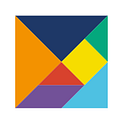13 teams. Two-day hack. 30 hours of development
InsurTech is the rising star of FinTech, but the culture gap between tech startups and insurance veterans has slowed the ability of the industry to realise the benefits of new technologies. DataArt is playing an active role in bridging this gap through its active participation in InsurTech events and by delivering innovative digitalization solutions across the industry. One of the ways that DataArt helps InsurTech to succeed is by supporting and/or establishing accelerators, innovation labs, and hackathons designed to bring people and companies together to create the digital future for the insurance market.
This March, DataArt partnered with Allianz, zeb, and Franke und Bornberg for the international two-day InsurTech hackathon (#_hackNEXT) held at a business incubator WERK1 in Munich, Germany. The aim of the event was to develop apps and solutions to meet today’s challenges faced by the insurance industry. DataArt played a key role of a co-sponsor and organizer.
Insurance is often perceived to be quicker to embrace innovative product solutions rather than technologies, but #_hackNext sought to disrupt this model by asking teams to do both.
As an organizer, DataArt was responsible for the technical part of the event, including website development and assisting teams during the hackathon. In addition, DataArt’s Global Head of Finance Practice, Cliff Moyce, served as one of the the main judges, overseeing code review.
#_hackNext brought together students who were interested in the hackathon as a process, and wanted to learn about the insurance industry. Alongside the young specialists, teams from partner companies and a number of C-level executives contributed ideas for innovative solutions.
The jury assessed the teams on four criteria:
- Impact. A product resolving customer pain points;
- Innovation. A truly new idea for the insurance sector;
- Wow-factor. A lasting impression on the jury;
- Code quality. How good the quality of the code is.
Besides creating disruptive apps, participants had opportunities to attend and participate in workshops on topics ranging from how to pitch ideas and solutions, to how to use design-thinking approaches in solution development. On top of this, the expert jury panel and representatives from partner firms shared their thoughts on trends and challenges in the insurance industry.
“All work and no play makes Jack a dull boy,” thought #_hackNEXT organisers and ensured that the participants had a chance to recharge their powers and creativity.
The hackathon lasted 2 days, during which time all participants were provided with food and drinks around the clock, and entertaining surprises, such as a nerf-guns fight.
The #_hackNEXT organisers offered three money prizes. The first-ranked team received €10,000, the second-ranked — € 3,500, and the third — € 1,500. There were also three special prizes from the partners: a unique opportunity to pitch at EXECinsurtech (the international InsurTech event that brings together startups, investors and corporate executives); free IBM Bluemix accounts; and free GitHub developer accounts.
All teams came up with interesting and innovative ideas, with great potential to be real solutions in the industry. Some solutions included personal bot-assistants that facilitated understanding of insurance products and helped customers choose the best product for them based on relevance, utility and price.
The first prize (10K euro) went to team meta@hack for their innovative solution for connecting health insurance and medical prescriptions management.
Second place went to team Carlexa with their hack that used artificial intelligence agent (powered by Alexa) for car insurance.
Originally published at http://blog.dataart.com/reflections-of-the-munich-_hacknext-2017-2/ on June 8, 2017.
